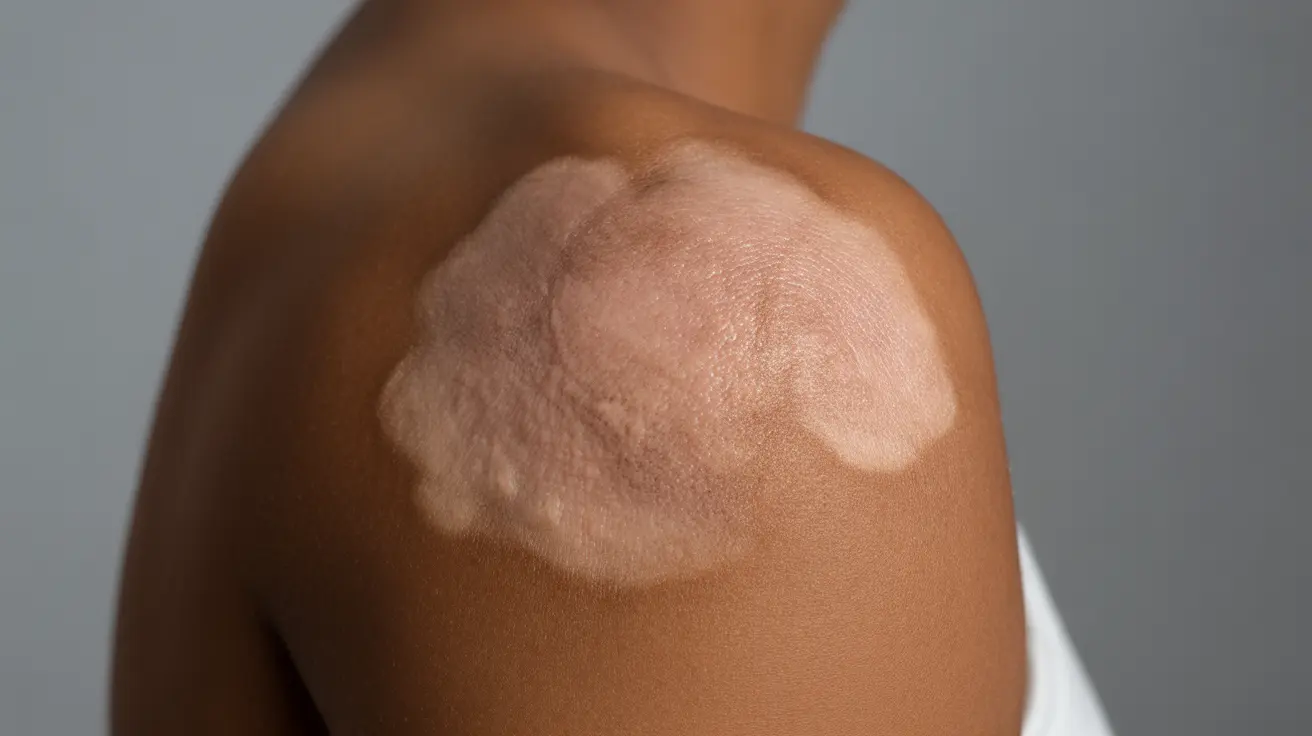Ringworm on black skin can present differently than it does on lighter skin tones, making it crucial to understand its unique characteristics for proper identification and treatment. This fungal infection, despite its name, isn't caused by a worm but by various types of fungi that can affect the skin, scalp, and other areas of the body.
For individuals with darker skin tones, recognizing ringworm early is essential for effective treatment and preventing its spread to others. Let's explore how this common skin condition manifests on black skin, along with proven treatment approaches and prevention strategies.
Identifying Ringworm on Black Skin
On black skin, ringworm typically appears as patches that may be lighter or darker than the surrounding skin. Unlike the clearly visible red rings seen on lighter skin tones, the presentation can be more subtle and may include:
- Patches with raised, scaly borders
- Areas of skin discoloration
- Slightly raised or bumpy texture
- Possible itching or burning sensation
- Circular or oval-shaped lesions
The affected areas might show hyperpigmentation (darker spots) or hypopigmentation (lighter spots), which can persist even after the infection clears. This variation in appearance can sometimes lead to delayed diagnosis or confusion with other skin conditions.
Scalp Ringworm in Black Children
Scalp ringworm (tinea capitis) is particularly common in black children and requires special attention. Signs include:
- Scaly, itchy patches on the scalp
- Areas of hair loss or breakage
- Black dots where hair has broken off
- Tender or painful spots
- Swollen lymph nodes
Early identification and treatment are crucial to prevent permanent hair loss and scarring. Parents should be particularly vigilant about checking their children's scalps regularly.
Treatment Options and Approaches
Over-the-Counter Solutions
For mild cases affecting the body, over-the-counter antifungal treatments can be effective. These include:
- Clotrimazole creams
- Miconazole products
- Terbinafine preparations
Prescription Medications
More severe cases, especially scalp infections, typically require prescription treatment:
- Oral antifungal medications
- Prescription-strength topical creams
- Medicated shampoos
- Extended treatment courses (typically 6-8 weeks for scalp infections)
Prevention and Spread Control
Preventing ringworm spread is essential, especially in households with multiple family members. Key prevention strategies include:
- Regular handwashing
- Avoiding sharing personal items like combs or towels
- Keeping skin clean and dry
- Regular washing of bedding and clothes
- Prompt treatment of infected family members or pets
Frequently Asked Questions
- What does ringworm look like on black skin, and how is it different from the typical ring-like rash seen in lighter skin tones?
On black skin, ringworm appears as patches that may be lighter or darker than the surrounding skin, rather than the classic red rings seen on lighter skin. The borders may be raised and scaly, and the affected area might show subtle color variations rather than obvious redness.
- How is ringworm treated, especially for cases on the scalp or in severe instances where over-the-counter treatments aren't effective?
Scalp ringworm typically requires oral antifungal medications prescribed by a healthcare provider, along with medicated shampoos. Severe cases may need 6-8 weeks of treatment. Body ringworm might respond to over-the-counter antifungals, but persistent cases require prescription-strength medications.
- What are the common causes and risk factors for getting ringworm, particularly on the scalp in black children?
Common risk factors include close contact with infected individuals, sharing personal items, exposure to infected animals, and participating in contact sports. Black children may be more susceptible to scalp ringworm due to specific hair care practices and genetic factors affecting hair texture.
- Can home remedies like coconut oil or aloe vera help treat ringworm, or are antifungal creams more effective?
While some natural remedies may have mild antifungal properties, they are not as effective as proven antifungal medications. It's best to use FDA-approved antifungal treatments, whether over-the-counter or prescription, for reliable results.
- How can I prevent ringworm from spreading to others, especially in households with multiple family members?
Prevent spread by avoiding sharing personal items, maintaining good hygiene, keeping skin clean and dry, regularly washing bedding and clothes, and ensuring all infected family members receive proper treatment simultaneously. Pets should also be checked and treated if necessary.




